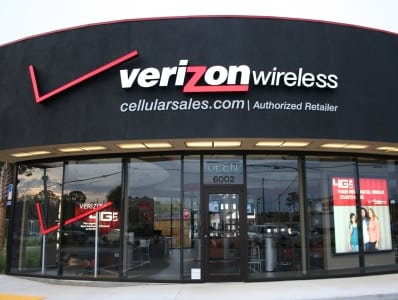Tax-Saving Strategies
- About
- Tax-Deferred Exchange: 1031
- Tax-Deductible Investing: Domestic Energy Limited Partnerships and Qualified Opportunity Zones
- Contact
About

Tax-Saving Strategies
Tax-deferred exchanges and tax-deferred investing could be good options for you to build wealth and reduce your tax burden. Contact EagleStone to learn more.
Tax-Deferred Exchange: 1031

1031 Exchange – Decades Of Knowledge & Experience
The 1031 exchange is a unique solution that offers our clients many benefits. It is one example of the many types of opportunities that only come from dealing with the entirety of your financial picture, from accounting and tax issues, to financial planning and investments.
What is a 1031 Exchange?
A 1031 Exchange is named after a section of the IRS code that allows for an investor to sell a property that they own, and invest those proceeds into another property; while deferring the taxable gains that would normally be paid on the sale of the property.
What are the benefits to you?
benefits to you?
Do you have an appreciated investment property that you want or need to sell, that could leave you with a large tax bill?
It is not uncommon for someone to have a property that has appreciated significantly in value but the monthly income is much lower than it could be. Selling that property under the 1031 exchange rules could potentially get you out of a dead asset and into a higher income producing one, while deferring the taxes due on the sale, and having more money to reinvest into the new property.
Are you managing an investment property yourself and find it to be a miserable process?
If you own property that you also manage, you may be familiar with some of the problems that arise. You may be tired of dealing with late paying tenants, getting phone calls for repairs at all hours of the day and night, dealing with the hassle of always keeping a property leased out, cleaning and repairs after someone vacates the property, and all of the legal and tax issues that can come with managing the property on your own. With a 1031 exchange, you could remove all of those hassles from your life, and still potentially increase your monthly income, with a more desirable property and a much higher quality tenant.
Is your real estate portfolio taking on too much risk by not being diversified?
If you have several properties that are in one geographical area, or are of a specific type, it can often leave you open to risks if problems arise. Processing a 1031 exchange could give you the ability to diversify your assets across many different geographical areas as well as various asset types, such as; retail, industrial, multifamily, apartment complex & office buildings.
Why should you choose Eaglestone Tax & Wealth Advisors to help you with your 1031 exchange?

Decades of Knowledge & Experience
The rules of processing a 1031 exchange can get very complicated. As a comprehensive financial services firm, we have decades of experience dealing with the accounting, tax, financial planning, and legal issues related to 1031 exchanges and are prepared to quarterback this process for you from start to finish. Not only do we have the knowledge and experience, our regulatory records speak for themselves. In all of our years in business, we have no employees with any disclosure events, which is something that we are very proud of.
High Quality, Fully Vetted Properties
Our 1031 inventory is made up of properties that are not available to the general public. They are not crowd funded. An extensive amount of due diligence has been done, by experts, on each and every one of our properties to make sure that everything is right. These properties are some of the most beautiful assets in the country and are of many different asset types such as; retail, industrial, multifamily, apartment complex & office buildings. In addition, they often have long term leases with high quality tenants which leads to long term stable properties and stable income.
Designed for a Competitive, Stable Income Stream
The 1031 exchanges that we provide to our clients are designed to offer a competitive yet stable annual distribution (payable monthly via direct deposit).
1031 Exchange – The Basics
What are the basics of a 1031 Exchange?
The 1031 exchange was created with Internal Revenue Code Section 1031(a)(1) which says:
“No gain or loss shall be recognized on the exchange of property held for productive use in a trade or business or for investment, if such property is exchanged solely for property of like-kind which is to be held either for productive use in a trade or business or for investment.”
So what does that really mean?
 There are two key terms to that statement above that should be clarified further for complete understanding.
There are two key terms to that statement above that should be clarified further for complete understanding.
Exchange
The word exchange is important because the transaction must be an exchange and not a sell and a purchase. When doing an exchange you must identify the replacement property following a specific process that has its own set of rules as provided by the IRS.
To be considered an exchange, there is a 45 day time restriction from the sale of the first property to the date that the replacement property is closed on, or at a minimum the replacement property must be formally and unambiguously identified and described. If the replacement property is simply identified by the 45 day deadline, it must be received and the exchange completed within 180 days or by the due date of the income tax return, including extensions, for the tax year in which the initial property was relinquished.
In addition to the time restrictions, when title is taken on the replacement property it must be titled in the same way that the relinquished property was titled.
Like-Kind
 The property received in the exchange must be of “like-kind” to the relinquished property. There are volumes of information written on what is considered a like-kind property. Here is an abbreviated definition from the IRS themselves:
The property received in the exchange must be of “like-kind” to the relinquished property. There are volumes of information written on what is considered a like-kind property. Here is an abbreviated definition from the IRS themselves:
“Properties are of like-kind, if they are of the same nature or character, even if they differ in grade or quality. Personal properties of a like class are like-kind properties. However,…personal property used predominantly in the United States and personal property used predominantly outside the United States are not like-kind properties.
Real properties generally are of like-kind, regardless of whether the properties are improved or unimproved. However, real property in the United States and real property outside the United States are not like-kind properties.”
The bottom line here is that the properties must be considered “like-kind” in order to qualify for 1031 exchange tax treatment. Like just about everything the IRS does, the rules can get complicated, but they do offer a lot of flexibility on what is considered a like kind property.
1031 Exchange – Do’s And Don’ts
There are many rules and regulations related to the 1031 exchange, but here are a handful of Do’s and Don’ts to keep in mind when navigating through this process.
Do’s and Dont’s
 DO advanced planning for the exchange. Talk to your accountant, attorney, broker, financial planner, lender and Qualified Intermediary prior to processing a 1031 exchange.
DO advanced planning for the exchange. Talk to your accountant, attorney, broker, financial planner, lender and Qualified Intermediary prior to processing a 1031 exchange.
DO NOT miss your identification and exchange deadlines. Failure to identify within the 45 day identification period or failure to acquire replacement property within the 180 day exchange period will disqualify the entire exchange resulting in the sale of the relinquished property being fully taxable. Reputable Intermediaries will not act on back-dated or late identifications.
DO keep in mind these three basic rules to qualify for complete tax deferral:
- Receive only “like-kind” replacement property.
- Use all proceeds from the relinquished property for purchasing the replacement property.
- Make sure the debt on the replacement property is equal to or greater than the debt on the relinquished property.
(Exception: A reduction in debt can be offset with additional cash; however, a reduction in equity cannot be offset by increasing debt).
DO NOT try doing a 1031 exchange using your attorney or CPA to hold title or funds. IRS regulation requires a Qualified Intermediary to properly complete an exchange.
 DO attempt to sell before you purchase. Occasionally exchangers find the ideal replacement property before a buyer is found for the relinquished property. If this situation occurs, a “reverse” exchange (buying before selling) may be necessary.
DO attempt to sell before you purchase. Occasionally exchangers find the ideal replacement property before a buyer is found for the relinquished property. If this situation occurs, a “reverse” exchange (buying before selling) may be necessary.
DO NOT dissolve partnerships or change the manner of holding title during the exchange. A change in the Exchanger’s legal relationship with the property may jeopardize the exchange.
Do report the exchange using IRS form 8824 in the year the exchange was made.
DO NOT take personal control of any sale proceeds before the exchange is done. This void the exchange and cause all sale proceeds to be immediately taxable.
1031 Exchange – What Is A Qualified Intermediary? (QI)
As we have already mentioned in previous articles in this section, the 1031 exchange process is a complex one with many rules and regulations that must be followed properly. In order to make sure that this process is handled correctly, in most cases, the use of something called a “Qualified Intermediary” is required to manage the process.
Identifying who will be the Qualified Intermediary (QI), also sometimes referred to as the accommodator or facilitator, is usually one of the first steps in the 1031 exchange process and their role is very clearly defined by the IRS code.
The Qualified Intermediary (QI) is responsible for:
 1. Acquiring the real estate property from the taxpayer.
1. Acquiring the real estate property from the taxpayer.
2. Transferring the real estate property to the buyer.
3. Acquiring the replacement property from the seller.
4. Transferring the replacement property to the taxpayer.
This means that they will be responsible for the 1031 exchange process from the beginning and will be responsible for receiving and safeguarding of the funds from the initial property sale, and distributing them with the subsequent purchase.
In addition, the Qualified Intermediary (QI), must be an independent organization that has no other contact with the person exchanging the property with the exception of processing the transaction. This means that friends, relatives, and even your own CPA or attorney are not allowed.
Due to the importance of getting this right, we recommend that you follow some simple advice when selecting a Qualified Intermediary (QI) to handle your 1031 exchange:
1. As mentioned above, you must not use someone that you have conducted personal business with before for other purposes. This must be done by an independent 3rd party.
2. Make sure that your Qualified Intermediary (QI) is bonded and insured. Also, check to make sure that they are current on their payments so if something goes wrong, they have the ability to fix it. We typically recommend that our clients select a large national company with strong financials. Since they are in charge of your funds during this process, you want to make sure that your assets are safe.
(FL)_Verizon_Store-Jacksonville-FL
 3. Make sure that the Qualified Intermediary (QI) that you select has a lot of experience handling 1031 exchanges. This is an obvious one, but often overlooked. You want to make sure that the company that you choose has a strong history of successful transactions. This way, you can be relatively sure that they have seen situations like yours before and know how to handle them.
3. Make sure that the Qualified Intermediary (QI) that you select has a lot of experience handling 1031 exchanges. This is an obvious one, but often overlooked. You want to make sure that the company that you choose has a strong history of successful transactions. This way, you can be relatively sure that they have seen situations like yours before and know how to handle them.
Of course, we would be happy to help you to identify the right Qualified Intermediary (QI) to facilitate your 1031 exchange. This is a service that we regularly provide to our clients as we help them navigate through this process.
1031 Exchange – What Is A DST Or Delaware Statutory Trust?
What is a DST or Delaware Statutory Trust and what are the benefits to you?
Many of our clients are liquidating “self managed” real estate properties and are no longer interested in handling the day-to-day management. In addition, since it is typically safer to diversify their interests into multiple properties, as opposed to only owning a single property in a single market, when processing a 1031 exchange, choosing to use a Delaware Statutory Trust (DST) is a great option for them.
 Put simply a Delaware Statutory Trust (DST) is a legal entity that is formed for the purpose of holding title to properties purchased. This trust will assign a trustee to handle the many day-to-day operations that are necessary and will own title to 100% of the interest in the property or properties acquired. In processing a 1031 exchange using a DST, your qualified intermediary (QI) would take the funds from liquidation of the initial property and place the funds into the DST and you would receive a beneficial interest in the newly formed trust.
Put simply a Delaware Statutory Trust (DST) is a legal entity that is formed for the purpose of holding title to properties purchased. This trust will assign a trustee to handle the many day-to-day operations that are necessary and will own title to 100% of the interest in the property or properties acquired. In processing a 1031 exchange using a DST, your qualified intermediary (QI) would take the funds from liquidation of the initial property and place the funds into the DST and you would receive a beneficial interest in the newly formed trust.
Using a DST gives you the following benefits:
– A DST gives you the ability to pool your funds from the sale of your property with the funds of other people to purchase some very impressive assets that, due to their size and uniqueness, are sought out by larger corporations that tend to sign longer and more profitable leases.
– The DST is the single owner and borrower. The lender only underwrites the DST, not each individual investor; therefore, the loan is nonrecourse to the investor. Investors purchasing a property on their own may have to arrange for financing and may be required to provide personal guarantees.
– The transfer of beneficial interests in a DST can be easier as there is generally less paperwork and time required than buying a property directly.
– A typical minimum investment of $100,000 allows more flexibility for investors to diversify their exchange into several properties compared to trying to purchase a property directly.
 – The DST allows cash investors (non-1031) the option to complete a 1031 tax deferred exchange when the current property is sold.
– The DST allows cash investors (non-1031) the option to complete a 1031 tax deferred exchange when the current property is sold.
– Investors are not required to sign on guarantees for non-recourse carve-outs on the loan that they might have with direct ownership.
While having many benefits, the DST may not be right for all investors as tax laws can change over time and, like real estate, a DST can have limited liquidity. This is another reason why working with someone that has years of experience in dealing with all aspects of 1031 exchanges is a good idea.
Tax-Deductible Investing: Tax-Deductible Investing: Domestic Energy Limited Partnerships and Qualified Opportunity Zones
Domestic Energy Limited Partnerships

Domestic Energy Limited Partnerships
What is it?
Investing in domestic energy limited partnerships serves several different objectives. First, such an investment can further a strategy of asset allocation and portfolio diversification. Studies comparing the behavior of oil and natural gas prices with that of stocks suggest an inverse relationship — their prices often move in opposite directions. In times of inflation, domestic energy limited partnerships can serve as a beneficial hedge. Second, investors who are willing and able to assume substantial investment risk have the potential for large gains from investing in domestic energy limited partnerships, particularly with drilling ventures. Third, the deductions accompanying domestic energy limited partnerships may help to lower your overall taxes. And finally, if you have passive gains from another source, you may take advantage of passive losses from domestic energy limited partnerships.
Strengths
Significant up-front deductions Often, investors can take first-year income tax deductions for the intangible drilling and development costs associated with drilling the wells. Because a high percentage of your initial investment can go to pay these intangible costs, such deductions may be substantial, often exceeding 80 percent of the initial investment and is often the primary reason to invest.
Definition of depletion allowance The depletion allowance is a type of deduction for limited partners receiving income from investments in natural resources, such as oil and natural gas. You are entitled to take annual deductions for the depletion of energy reserves to compensate you for the part exhausted in production.
Tax shelter (to some extent) If you take deductions for percentage depletion and intangible drilling costs, your otherwise taxable income (whether in the form of cash distributions from the domestic energy investment program, or from other sources) will be sheltered to the extent of those deductions. It is possible that deductions for depreciation, interest, taxes, and operating expenses may flow through as well.
Risks
Illiquidity Private limited partnership shares are illiquid. As a result, investors must be prepared to hold on to their shares for several years or face selling at a loss. The lifespan will typically run anywhere from 10 to 15 years.
High risk The safety of your principal depends on the type of limited partnership and quality of its holdings. Programs aimed at high capital gains involve commensurate risk. There is risk regarding whether oil and/or natural gas will be found at all and, if found, whether the well will dry up sooner than expected.
Subject to recapture rules and potential alternative minimum tax (AMT) liability Certain tax breaks associated with domestic energy limited partnerships are recaptured by the IRS when the underlying asset is sold. For example, if tangible property is sold, all depreciation is recaptured and taxed at the time of the sale. Note, also, that domestic energy limited partnership losses may have alternative minimum tax (AMT) implications.
Risks and Disclosures
Securities offered through Emerson Equity LLC, Member FINRA and SIPC. Financial Planning, Investment and Wealth Management services provided through EagleStone Wealth Advisors, Inc. Emerson Equity and EagleStone are not affiliated entities. Only available in states where Emerson Equity LLC is registered. Emerson Equity LLC is not affiliated with any other entities identified in this communication. For more information on Emerson Equity, please visit FINRA’s BrokerCheck website. You can also download a copy of Emerson Equity’s Customer Relationship Summary to learn more about their role and services.
Financial Planning, Wealth Management and Tax Services offered through EagleStone Tax & Wealth Advisors, Inc. Tax and Accounting services provided through EagleStone Tax & Accounting Services.
Not an offer to buy, nor a solicitation to sell securities. All investing involves risk of loss of some or all principal invested. Past performance is not indicative of future results. Speak to your finance and/or tax professional prior to investing. Any information provided is for informational purposes only. This communication is strictly intended for individuals residing in the state(s) of CO, DC, FL, KS, KY, MD, MA, NY, NC and VA. No offers may be made or accepted from any resident outside the specific states referenced.
IRS Circular 230 disclosure: To ensure compliance with requirements imposed by the IRS, we inform you that any tax advice contained in this communication (including any attachments) was not intended or written to be used, and cannot be used, for the purpose of (i) avoiding tax-related penalties under the Internal Revenue Code or (ii) promoting, marketing or recommending to another party any matter addressed herein.
Oil and Gas Investment Risks
Private investments in oil and gas are high risk, including, but not limited to the following considerations:
- Political Risk – Federal or local governments could enact regulations/legislation that could adversely affect the oil and gas industry, thereby negatively affecting your investment.
- Geological Risk – Oil and gas production can be negatively affected by the difficulty of extraction and the possibility that the accessible reserves in any deposit will be smaller than estimated. There is no guarantee that any drilling operation will be successful.
- Supply, Demand, and Price Risk – A reduction in oil and gas prices, a decrease in demand, or a surplus of available supply can reduce or even eliminate investment returns.
- Cost Risk – Unexpected or increased operating expenses can reduce or even eliminate investment returns.
- Dividend Cuts – Any dividend payments can be reduced or eliminated if the company is unable to earn enough revenue to fund the payments to investors.
- Oil Spill Risk – In addition to the cost of repairs, clean up, potential fines, and potential litigation, oil spills can negatively affect the reputation of the company, all of which can reduce or eliminate investment returns.
Qualified Opportunity Zones

Qualified Opportunity Zones
Qualified Opportunity Zones – In General
Opportunity zones generally represent economically distressed communities that are in need of investment and revitalization. Created under the Tax Cuts and Jobs Act of 2017, the purpose of opportunity zones is to spur economic growth and create jobs by incentivizing investment in these regions.
How Are Opportunity Zones Created?
Low-income communities, as well as certain neighboring areas, are defined by population census tracts and can qualify as an opportunity zone. State governors nominate a limited number of eligible tracts for official designation. The certification and designation of an opportunity zone comes from the Secretary of the Treasury via their delegation of authority to the Internal Revenue Service (IRS). Detailed information on the eligibility criteria for census tract designation and the nomination and designation process can be found on the IRS website. See URL at https://www.irs.gov/credits-deductions/opportunity-zones-frequently-asked-questions.
Where Are Opportunity Zones Located?
There are 8,764 opportunity zones in the U.S., which represent 12% of all census tracts. Many of the regions designated as opportunity zones have suffered from a lack of investment for decades and can be found on an interactive map shown on the U.S Department of Housing and Urban Development website. U.S. Depart. of Housing and Urban Development. "Map of Opportunity Zones." Just over 23% of opportunity zones are in rural areas.
Tax Advantages of Investing in Opportunity Zones
The primary tax benefit for investors of qualified opportunity funds is that they can defer tax payments on capital gains realized from prior investments. More specifically, if an investor allocates capital gains from a prior investment into a qualified opportunity fund within 180 days from the sale date, then that person is eligible to defer tax payment on the gain until the opportunity fund is sold or Dec. 31, 2026, whichever comes first. The taxes on the deferred gain would be due on or before the tax deadline of April 15, 2027. (As of March 2024, proposed legislation may extend this due date). Investors of Qualified Opportunity Funds (QOF) can also reduce their tax burdens even more by holding onto their investments for at least 10 years. If a qualified opportunity fund is held for at least 10 years, the gain is exempt from tax. In other words, investors who hold their investments in QOF for at least 10 years are eligible for an adjustment to the cost basis of the investment to reflect the fair market value on the date that the investment is sold or exchanged. As a result, due to the adjustment to the basis, gains made from the appreciation of are exempted from tax payments. Long-term investors are eligible to pay no tax on the appreciation of their QOF investment upon disposition of that investment, regardless of the size of that profit, if the assets held in that QOF are held for at least 10 years. Disclaimer: However, the tax benefits are not guaranteed. It is possible, due to tax, regulatory or investment decisions, that a fund, or its investors, are unable to realize any tax benefits. It is crucial that investors evaluate the merits of the underlying investment and do not rely solely in a QOF for any potential tax advantage. Furthermore, OZ investments qualify during a 1031 exchange, meaning investors trading from one asset can trade into an asset located in a QOZ to defer paying capital gains.
How do I elect to defer my eligible gain?
You may make an election to defer the gain, in whole or in part, when filing your federal income tax return. That is, you may make the election on the return on which the tax on that gain would be due if you do not defer it. For additional information, see How To Report an Election To Defer Tax on Eligible Gain Invested in a QOF in the Form 8949 instructions.
Risks and Disclosures
Opportunity Zone Disclosures
- Investing in opportunity zones is speculative. Opportunity zones are newly formed entities with no operating history. There is no assurance of investment return, property appreciation, or profits. The ability to resell the fund’s underlying investment properties or businesses is not guaranteed. Investing in opportunity zone funds may involve a higher level of risk than investing in other established real estate offerings.
- Long-term investment. Opportunity zone funds have illiquid underlying investments that may not be easy to sell and the return of capital and realization of gains, if any, from an investment will generally occur only upon the partial or complete disposition or refinancing of such investments.
- Limited secondary market for redemption. Although secondary markets may provide a liquidity option in limited circumstances, the amount you will receive typically is discounted to current valuations.
- Difficult valuation assessment. The portfolio holdings in opportunity zone funds may be difficult to value because financial markets or exchanges do not usually quote or trade the holdings. As such, market prices for most of a fund’s holdings will not be readily available.
- Capital call default consequences. Meeting capital calls to provide managers with the pledged capital is a contractual obligation of each investor. Failure to meet this requirement in a timely manner could elicit significant adverse consequences, including, without limitation, the forfeiture of your interest in the fund.
- Leverage. Opportunity zone funds may use leverage in connection with certain investments or participate in investments with highly leveraged capital structures. Leverage involves a high degree of financial risk and may increase the exposure of such investments to factors such as rising interest rates, downturns in the economy or deterioration in the condition of the assets underlying such investments.
- Unregistered investment. As with other unregistered investments, the regulatory protections of the Investment Company Act of 1940 are not available with unregistered securities.
- Regulation. It is possible, due to tax, regulatory, or investment decisions, that a fund, or its investors, are unable realize any tax benefits. You should evaluate the merits of the underlying investment and not solely invest in an opportunity zone fund for any potential tax advantage.
- About
- Tax-Deferred Exchange: 1031
- Tax-Deductible Investing: Tax-Deductible Investing: Domestic Energy Limited Partnerships and Qualified Opportunity Zones
- Contact us to learn more

Tax-Saving Strategies
Tax-deferred exchanges and tax-deferred investing could be good options for you to build wealth and reduce your tax burden. Contact EagleStone to learn more.

1031 Exchange – Decades Of Knowledge & Experience
The 1031 exchange is a unique solution that offers our clients many benefits. It is one example of the many types of opportunities that only come from dealing with the entirety of your financial picture, from accounting and tax issues, to financial planning and investments.
What is a 1031 Exchange?
A 1031 Exchange is named after a section of the IRS code that allows for an investor to sell a property that they own, and invest those proceeds into another property; while deferring the taxable gains that would normally be paid on the sale of the property.
What are the benefits to you?
benefits to you?
Do you have an appreciated investment property that you want or need to sell, that could leave you with a large tax bill?
It is not uncommon for someone to have a property that has appreciated significantly in value but the monthly income is much lower than it could be. Selling that property under the 1031 exchange rules could potentially get you out of a dead asset and into a higher income producing one, while deferring the taxes due on the sale, and having more money to reinvest into the new property.
Are you managing an investment property yourself and find it to be a miserable process?
If you own property that you also manage, you may be familiar with some of the problems that arise. You may be tired of dealing with late paying tenants, getting phone calls for repairs at all hours of the day and night, dealing with the hassle of always keeping a property leased out, cleaning and repairs after someone vacates the property, and all of the legal and tax issues that can come with managing the property on your own. With a 1031 exchange, you could remove all of those hassles from your life, and still potentially increase your monthly income, with a more desirable property and a much higher quality tenant.
Is your real estate portfolio taking on too much risk by not being diversified?
If you have several properties that are in one geographical area, or are of a specific type, it can often leave you open to risks if problems arise. Processing a 1031 exchange could give you the ability to diversify your assets across many different geographical areas as well as various asset types, such as; retail, industrial, multifamily, apartment complex & office buildings.
Why should you choose Eaglestone Tax & Wealth Advisors to help you with your 1031 exchange?

Decades of Knowledge & Experience
The rules of processing a 1031 exchange can get very complicated. As a comprehensive financial services firm, we have decades of experience dealing with the accounting, tax, financial planning, and legal issues related to 1031 exchanges and are prepared to quarterback this process for you from start to finish. Not only do we have the knowledge and experience, our regulatory records speak for themselves. In all of our years in business, we have no employees with any disclosure events, which is something that we are very proud of.
High Quality, Fully Vetted Properties
Our 1031 inventory is made up of properties that are not available to the general public. They are not crowd funded. An extensive amount of due diligence has been done, by experts, on each and every one of our properties to make sure that everything is right. These properties are some of the most beautiful assets in the country and are of many different asset types such as; retail, industrial, multifamily, apartment complex & office buildings. In addition, they often have long term leases with high quality tenants which leads to long term stable properties and stable income.
Designed for a Competitive, Stable Income Stream
The 1031 exchanges that we provide to our clients are designed to offer a competitive yet stable annual distribution (payable monthly via direct deposit).
1031 Exchange – The Basics
What are the basics of a 1031 Exchange?
The 1031 exchange was created with Internal Revenue Code Section 1031(a)(1) which says:
“No gain or loss shall be recognized on the exchange of property held for productive use in a trade or business or for investment, if such property is exchanged solely for property of like-kind which is to be held either for productive use in a trade or business or for investment.”
So what does that really mean?
 There are two key terms to that statement above that should be clarified further for complete understanding.
There are two key terms to that statement above that should be clarified further for complete understanding.
Exchange
The word exchange is important because the transaction must be an exchange and not a sell and a purchase. When doing an exchange you must identify the replacement property following a specific process that has its own set of rules as provided by the IRS.
To be considered an exchange, there is a 45 day time restriction from the sale of the first property to the date that the replacement property is closed on, or at a minimum the replacement property must be formally and unambiguously identified and described. If the replacement property is simply identified by the 45 day deadline, it must be received and the exchange completed within 180 days or by the due date of the income tax return, including extensions, for the tax year in which the initial property was relinquished.
In addition to the time restrictions, when title is taken on the replacement property it must be titled in the same way that the relinquished property was titled.
Like-Kind
 The property received in the exchange must be of “like-kind” to the relinquished property. There are volumes of information written on what is considered a like-kind property. Here is an abbreviated definition from the IRS themselves:
The property received in the exchange must be of “like-kind” to the relinquished property. There are volumes of information written on what is considered a like-kind property. Here is an abbreviated definition from the IRS themselves:
“Properties are of like-kind, if they are of the same nature or character, even if they differ in grade or quality. Personal properties of a like class are like-kind properties. However,…personal property used predominantly in the United States and personal property used predominantly outside the United States are not like-kind properties.
Real properties generally are of like-kind, regardless of whether the properties are improved or unimproved. However, real property in the United States and real property outside the United States are not like-kind properties.”
The bottom line here is that the properties must be considered “like-kind” in order to qualify for 1031 exchange tax treatment. Like just about everything the IRS does, the rules can get complicated, but they do offer a lot of flexibility on what is considered a like kind property.
1031 Exchange – Do’s And Don’ts
There are many rules and regulations related to the 1031 exchange, but here are a handful of Do’s and Don’ts to keep in mind when navigating through this process.
Do’s and Dont’s
 DO advanced planning for the exchange. Talk to your accountant, attorney, broker, financial planner, lender and Qualified Intermediary prior to processing a 1031 exchange.
DO advanced planning for the exchange. Talk to your accountant, attorney, broker, financial planner, lender and Qualified Intermediary prior to processing a 1031 exchange.
DO NOT miss your identification and exchange deadlines. Failure to identify within the 45 day identification period or failure to acquire replacement property within the 180 day exchange period will disqualify the entire exchange resulting in the sale of the relinquished property being fully taxable. Reputable Intermediaries will not act on back-dated or late identifications.
DO keep in mind these three basic rules to qualify for complete tax deferral:
- Receive only “like-kind” replacement property.
- Use all proceeds from the relinquished property for purchasing the replacement property.
- Make sure the debt on the replacement property is equal to or greater than the debt on the relinquished property.
(Exception: A reduction in debt can be offset with additional cash; however, a reduction in equity cannot be offset by increasing debt).
DO NOT try doing a 1031 exchange using your attorney or CPA to hold title or funds. IRS regulation requires a Qualified Intermediary to properly complete an exchange.
 DO attempt to sell before you purchase. Occasionally exchangers find the ideal replacement property before a buyer is found for the relinquished property. If this situation occurs, a “reverse” exchange (buying before selling) may be necessary.
DO attempt to sell before you purchase. Occasionally exchangers find the ideal replacement property before a buyer is found for the relinquished property. If this situation occurs, a “reverse” exchange (buying before selling) may be necessary.
DO NOT dissolve partnerships or change the manner of holding title during the exchange. A change in the Exchanger’s legal relationship with the property may jeopardize the exchange.
Do report the exchange using IRS form 8824 in the year the exchange was made.
DO NOT take personal control of any sale proceeds before the exchange is done. This void the exchange and cause all sale proceeds to be immediately taxable.
1031 Exchange – What Is A Qualified Intermediary? (QI)
As we have already mentioned in previous articles in this section, the 1031 exchange process is a complex one with many rules and regulations that must be followed properly. In order to make sure that this process is handled correctly, in most cases, the use of something called a “Qualified Intermediary” is required to manage the process.
Identifying who will be the Qualified Intermediary (QI), also sometimes referred to as the accommodator or facilitator, is usually one of the first steps in the 1031 exchange process and their role is very clearly defined by the IRS code.
The Qualified Intermediary (QI) is responsible for:
 1. Acquiring the real estate property from the taxpayer.
1. Acquiring the real estate property from the taxpayer.
2. Transferring the real estate property to the buyer.
3. Acquiring the replacement property from the seller.
4. Transferring the replacement property to the taxpayer.
This means that they will be responsible for the 1031 exchange process from the beginning and will be responsible for receiving and safeguarding of the funds from the initial property sale, and distributing them with the subsequent purchase.
In addition, the Qualified Intermediary (QI), must be an independent organization that has no other contact with the person exchanging the property with the exception of processing the transaction. This means that friends, relatives, and even your own CPA or attorney are not allowed.
Due to the importance of getting this right, we recommend that you follow some simple advice when selecting a Qualified Intermediary (QI) to handle your 1031 exchange:
1. As mentioned above, you must not use someone that you have conducted personal business with before for other purposes. This must be done by an independent 3rd party.
2. Make sure that your Qualified Intermediary (QI) is bonded and insured. Also, check to make sure that they are current on their payments so if something goes wrong, they have the ability to fix it. We typically recommend that our clients select a large national company with strong financials. Since they are in charge of your funds during this process, you want to make sure that your assets are safe.
(FL)_Verizon_Store-Jacksonville-FL
 3. Make sure that the Qualified Intermediary (QI) that you select has a lot of experience handling 1031 exchanges. This is an obvious one, but often overlooked. You want to make sure that the company that you choose has a strong history of successful transactions. This way, you can be relatively sure that they have seen situations like yours before and know how to handle them.
3. Make sure that the Qualified Intermediary (QI) that you select has a lot of experience handling 1031 exchanges. This is an obvious one, but often overlooked. You want to make sure that the company that you choose has a strong history of successful transactions. This way, you can be relatively sure that they have seen situations like yours before and know how to handle them.
Of course, we would be happy to help you to identify the right Qualified Intermediary (QI) to facilitate your 1031 exchange. This is a service that we regularly provide to our clients as we help them navigate through this process.
1031 Exchange – What Is A DST Or Delaware Statutory Trust?
What is a DST or Delaware Statutory Trust and what are the benefits to you?
Many of our clients are liquidating “self managed” real estate properties and are no longer interested in handling the day-to-day management. In addition, since it is typically safer to diversify their interests into multiple properties, as opposed to only owning a single property in a single market, when processing a 1031 exchange, choosing to use a Delaware Statutory Trust (DST) is a great option for them.
 Put simply a Delaware Statutory Trust (DST) is a legal entity that is formed for the purpose of holding title to properties purchased. This trust will assign a trustee to handle the many day-to-day operations that are necessary and will own title to 100% of the interest in the property or properties acquired. In processing a 1031 exchange using a DST, your qualified intermediary (QI) would take the funds from liquidation of the initial property and place the funds into the DST and you would receive a beneficial interest in the newly formed trust.
Put simply a Delaware Statutory Trust (DST) is a legal entity that is formed for the purpose of holding title to properties purchased. This trust will assign a trustee to handle the many day-to-day operations that are necessary and will own title to 100% of the interest in the property or properties acquired. In processing a 1031 exchange using a DST, your qualified intermediary (QI) would take the funds from liquidation of the initial property and place the funds into the DST and you would receive a beneficial interest in the newly formed trust.
Using a DST gives you the following benefits:
– A DST gives you the ability to pool your funds from the sale of your property with the funds of other people to purchase some very impressive assets that, due to their size and uniqueness, are sought out by larger corporations that tend to sign longer and more profitable leases.
– The DST is the single owner and borrower. The lender only underwrites the DST, not each individual investor; therefore, the loan is nonrecourse to the investor. Investors purchasing a property on their own may have to arrange for financing and may be required to provide personal guarantees.
– The transfer of beneficial interests in a DST can be easier as there is generally less paperwork and time required than buying a property directly.
– A typical minimum investment of $100,000 allows more flexibility for investors to diversify their exchange into several properties compared to trying to purchase a property directly.
 – The DST allows cash investors (non-1031) the option to complete a 1031 tax deferred exchange when the current property is sold.
– The DST allows cash investors (non-1031) the option to complete a 1031 tax deferred exchange when the current property is sold.
– Investors are not required to sign on guarantees for non-recourse carve-outs on the loan that they might have with direct ownership.
While having many benefits, the DST may not be right for all investors as tax laws can change over time and, like real estate, a DST can have limited liquidity. This is another reason why working with someone that has years of experience in dealing with all aspects of 1031 exchanges is a good idea.
Domestic Energy Limited Partnerships

Domestic Energy Limited Partnerships
What is it?
Investing in domestic energy limited partnerships serves several different objectives. First, such an investment can further a strategy of asset allocation and portfolio diversification. Studies comparing the behavior of oil and natural gas prices with that of stocks suggest an inverse relationship — their prices often move in opposite directions. In times of inflation, domestic energy limited partnerships can serve as a beneficial hedge. Second, investors who are willing and able to assume substantial investment risk have the potential for large gains from investing in domestic energy limited partnerships, particularly with drilling ventures. Third, the deductions accompanying domestic energy limited partnerships may help to lower your overall taxes. And finally, if you have passive gains from another source, you may take advantage of passive losses from domestic energy limited partnerships.
Strengths
Significant up-front deductions Often, investors can take first-year income tax deductions for the intangible drilling and development costs associated with drilling the wells. Because a high percentage of your initial investment can go to pay these intangible costs, such deductions may be substantial, often exceeding 80 percent of the initial investment and is often the primary reason to invest.
Definition of depletion allowance The depletion allowance is a type of deduction for limited partners receiving income from investments in natural resources, such as oil and natural gas. You are entitled to take annual deductions for the depletion of energy reserves to compensate you for the part exhausted in production.
Tax shelter (to some extent) If you take deductions for percentage depletion and intangible drilling costs, your otherwise taxable income (whether in the form of cash distributions from the domestic energy investment program, or from other sources) will be sheltered to the extent of those deductions. It is possible that deductions for depreciation, interest, taxes, and operating expenses may flow through as well.
Risks
Illiquidity Private limited partnership shares are illiquid. As a result, investors must be prepared to hold on to their shares for several years or face selling at a loss. The lifespan will typically run anywhere from 10 to 15 years.
High risk The safety of your principal depends on the type of limited partnership and quality of its holdings. Programs aimed at high capital gains involve commensurate risk. There is risk regarding whether oil and/or natural gas will be found at all and, if found, whether the well will dry up sooner than expected.
Subject to recapture rules and potential alternative minimum tax (AMT) liability Certain tax breaks associated with domestic energy limited partnerships are recaptured by the IRS when the underlying asset is sold. For example, if tangible property is sold, all depreciation is recaptured and taxed at the time of the sale. Note, also, that domestic energy limited partnership losses may have alternative minimum tax (AMT) implications.
Risks and Disclosures
Securities offered through Emerson Equity LLC, Member FINRA and SIPC. Financial Planning, Investment and Wealth Management services provided through EagleStone Wealth Advisors, Inc. Emerson Equity and EagleStone are not affiliated entities. Only available in states where Emerson Equity LLC is registered. Emerson Equity LLC is not affiliated with any other entities identified in this communication. For more information on Emerson Equity, please visit FINRA’s BrokerCheck website. You can also download a copy of Emerson Equity’s Customer Relationship Summary to learn more about their role and services.
Financial Planning, Wealth Management and Tax Services offered through EagleStone Tax & Wealth Advisors, Inc. Tax and Accounting services provided through EagleStone Tax & Accounting Services.
Not an offer to buy, nor a solicitation to sell securities. All investing involves risk of loss of some or all principal invested. Past performance is not indicative of future results. Speak to your finance and/or tax professional prior to investing. Any information provided is for informational purposes only. This communication is strictly intended for individuals residing in the state(s) of CO, DC, FL, KS, KY, MD, MA, NY, NC and VA. No offers may be made or accepted from any resident outside the specific states referenced.
IRS Circular 230 disclosure: To ensure compliance with requirements imposed by the IRS, we inform you that any tax advice contained in this communication (including any attachments) was not intended or written to be used, and cannot be used, for the purpose of (i) avoiding tax-related penalties under the Internal Revenue Code or (ii) promoting, marketing or recommending to another party any matter addressed herein.
Oil and Gas Investment Risks
Private investments in oil and gas are high risk, including, but not limited to the following considerations:
- Political Risk – Federal or local governments could enact regulations/legislation that could adversely affect the oil and gas industry, thereby negatively affecting your investment.
- Geological Risk – Oil and gas production can be negatively affected by the difficulty of extraction and the possibility that the accessible reserves in any deposit will be smaller than estimated. There is no guarantee that any drilling operation will be successful.
- Supply, Demand, and Price Risk – A reduction in oil and gas prices, a decrease in demand, or a surplus of available supply can reduce or even eliminate investment returns.
- Cost Risk – Unexpected or increased operating expenses can reduce or even eliminate investment returns.
- Dividend Cuts – Any dividend payments can be reduced or eliminated if the company is unable to earn enough revenue to fund the payments to investors.
- Oil Spill Risk – In addition to the cost of repairs, clean up, potential fines, and potential litigation, oil spills can negatively affect the reputation of the company, all of which can reduce or eliminate investment returns.
Qualified Opportunity Zones

Qualified Opportunity Zones
Qualified Opportunity Zones – In General
Opportunity zones generally represent economically distressed communities that are in need of investment and revitalization. Created under the Tax Cuts and Jobs Act of 2017, the purpose of opportunity zones is to spur economic growth and create jobs by incentivizing investment in these regions.
How Are Opportunity Zones Created?
Low-income communities, as well as certain neighboring areas, are defined by population census tracts and can qualify as an opportunity zone. State governors nominate a limited number of eligible tracts for official designation. The certification and designation of an opportunity zone comes from the Secretary of the Treasury via their delegation of authority to the Internal Revenue Service (IRS). Detailed information on the eligibility criteria for census tract designation and the nomination and designation process can be found on the IRS website. See URL at https://www.irs.gov/credits-deductions/opportunity-zones-frequently-asked-questions.
Where Are Opportunity Zones Located?
There are 8,764 opportunity zones in the U.S., which represent 12% of all census tracts. Many of the regions designated as opportunity zones have suffered from a lack of investment for decades and can be found on an interactive map shown on the U.S Department of Housing and Urban Development website. U.S. Depart. of Housing and Urban Development. "Map of Opportunity Zones." Just over 23% of opportunity zones are in rural areas.
Tax Advantages of Investing in Opportunity Zones
The primary tax benefit for investors of qualified opportunity funds is that they can defer tax payments on capital gains realized from prior investments. More specifically, if an investor allocates capital gains from a prior investment into a qualified opportunity fund within 180 days from the sale date, then that person is eligible to defer tax payment on the gain until the opportunity fund is sold or Dec. 31, 2026, whichever comes first. The taxes on the deferred gain would be due on or before the tax deadline of April 15, 2027. (As of March 2024, proposed legislation may extend this due date). Investors of Qualified Opportunity Funds (QOF) can also reduce their tax burdens even more by holding onto their investments for at least 10 years. If a qualified opportunity fund is held for at least 10 years, the gain is exempt from tax. In other words, investors who hold their investments in QOF for at least 10 years are eligible for an adjustment to the cost basis of the investment to reflect the fair market value on the date that the investment is sold or exchanged. As a result, due to the adjustment to the basis, gains made from the appreciation of are exempted from tax payments. Long-term investors are eligible to pay no tax on the appreciation of their QOF investment upon disposition of that investment, regardless of the size of that profit, if the assets held in that QOF are held for at least 10 years. Disclaimer: However, the tax benefits are not guaranteed. It is possible, due to tax, regulatory or investment decisions, that a fund, or its investors, are unable to realize any tax benefits. It is crucial that investors evaluate the merits of the underlying investment and do not rely solely in a QOF for any potential tax advantage. Furthermore, OZ investments qualify during a 1031 exchange, meaning investors trading from one asset can trade into an asset located in a QOZ to defer paying capital gains.
How do I elect to defer my eligible gain?
You may make an election to defer the gain, in whole or in part, when filing your federal income tax return. That is, you may make the election on the return on which the tax on that gain would be due if you do not defer it. For additional information, see How To Report an Election To Defer Tax on Eligible Gain Invested in a QOF in the Form 8949 instructions.
Risks and Disclosures
Opportunity Zone Disclosures
- Investing in opportunity zones is speculative. Opportunity zones are newly formed entities with no operating history. There is no assurance of investment return, property appreciation, or profits. The ability to resell the fund’s underlying investment properties or businesses is not guaranteed. Investing in opportunity zone funds may involve a higher level of risk than investing in other established real estate offerings.
- Long-term investment. Opportunity zone funds have illiquid underlying investments that may not be easy to sell and the return of capital and realization of gains, if any, from an investment will generally occur only upon the partial or complete disposition or refinancing of such investments.
- Limited secondary market for redemption. Although secondary markets may provide a liquidity option in limited circumstances, the amount you will receive typically is discounted to current valuations.
- Difficult valuation assessment. The portfolio holdings in opportunity zone funds may be difficult to value because financial markets or exchanges do not usually quote or trade the holdings. As such, market prices for most of a fund’s holdings will not be readily available.
- Capital call default consequences. Meeting capital calls to provide managers with the pledged capital is a contractual obligation of each investor. Failure to meet this requirement in a timely manner could elicit significant adverse consequences, including, without limitation, the forfeiture of your interest in the fund.
- Leverage. Opportunity zone funds may use leverage in connection with certain investments or participate in investments with highly leveraged capital structures. Leverage involves a high degree of financial risk and may increase the exposure of such investments to factors such as rising interest rates, downturns in the economy or deterioration in the condition of the assets underlying such investments.
- Unregistered investment. As with other unregistered investments, the regulatory protections of the Investment Company Act of 1940 are not available with unregistered securities.
- Regulation. It is possible, due to tax, regulatory, or investment decisions, that a fund, or its investors, are unable realize any tax benefits. You should evaluate the merits of the underlying investment and not solely invest in an opportunity zone fund for any potential tax advantage.
Main Phone: 301-924-2160
Contact Us
Get in touch with one of our professionals to discuss your needs.

Securities offered through Emerson Equity LLC. Member FINRA/SIPC. Advisory Services offered through EagleStone Tax & Wealth Advisors. EagleStone Tax & Wealth Advisors is not affiliated with Emerson Equity LLC. Financial planning, investment and wealth management services provided through EagleStone Wealth Advisors, Inc. Tax and accounting services provided through EagleStone Tax & Accounting Services.
For more information on Emerson Equity, please visit FINRA’s BrokerCheck website. You can also download a copy of Emerson Equity’s Customer Relationship Summary to learn more about their role and services.
Download our Form CRS (Client Relationship Summary) by clicking here.
Download Form ADV by clicking here.
Download Form ADV Part 2A by clicking here.
Click here to learn more about our Privacy Policy and Information Security Program.
Click here to for additional disclosures
Investment products & services are only available to residents of CO, DC, FL, KS, KY, MA, MD, NC, NY, PA, SC, VA & WA.
Licensed to sell insurance and variable annuities in the following States: DC, DE, FL, MD, ME, MI, NC, NJ, NY, PA, SC, & VA.
Contact Us
Address:
1101 Wootton Parkway
Suite 400
Rockville, Maryland 20852
Phone:
301-924-2160
Fax:
202-204-6322
Email:
[email protected]




